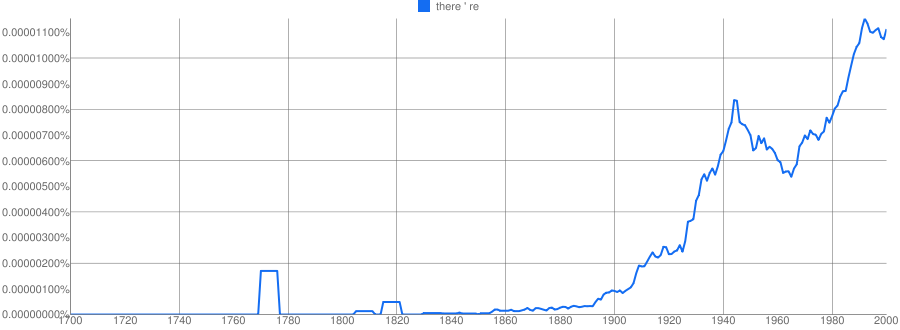It's not incorrect, but it's difficult to say /'ðɛrər/, with two unstressed /r/s in a row, so mostly nobody does. The purpose of a contraction is to make things easier to say, not harder.
This difficulty is one of the forces that has led to widespread use and acceptance of there's as an unchanging existential idiom, like Es gibt in German, Hay in Spanish, Il y a in French, Yeʃ in Hebrew, etc.
Another is the fact that, if you think about it, number agreement contributes nothing to the meaning in this idiom, and should not appear at all, since the subject is there, which is a dummy noun that means nothing and is neither singular nor plural by logic, so by convention it should be singular.
That's good enough for nobody as a subject, too: Nobody is coming, even though it's neither singular nor plural, and even though it may represent many individual people and their individual decisions.


